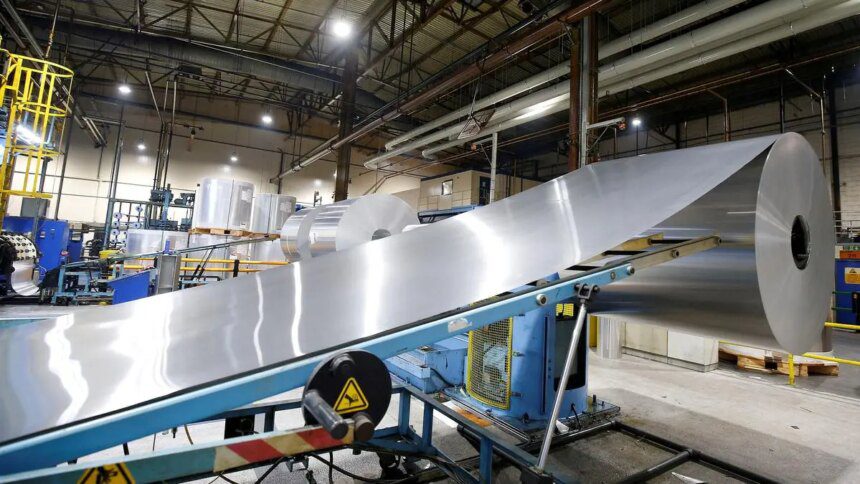As India embarks on its journey toward becoming a $30 trillion economy, achieving net-zero emissions, and asserting its leadership in global manufacturing, the aluminium industry emerges as a crucial enabler. More than a mere metal supplier, the aluminium sector is a strategic asset that supports key areas essential to national development, including clean energy, electric mobility, infrastructure, aerospace, and defence. The Indian government’s Aluminium Vision Document aptly designates aluminium as the metal of the future, vital for the country’s energy independence, sustainability ambitions, and competitive standing on the global stage.
The roadmap to self-reliance
To position India as a global aluminium hub, a clear strategy must be followed: attain self-sufficiency in raw materials, promote domestic manufacturing, establish a robust domestic scrap collection system, and create protective measures for the domestic aluminium sector. Implementing this plan would enable the country to meet the anticipated rise in domestic demand and potentially secure 10% of the global aluminium market by 2047.
Global trends and protectionism
While global aluminium demand remains stagnant, India’s domestic consumption is growing at a compound annual growth rate (CAGR) of 10%. Instead of capitalizing on this opportunity, India is increasingly importing aluminium, which undermines local manufacturers. In contrast, other countries implement protective measures through tariffs and non-tariff barriers, evident in the U.S. tariffs, the European Union’s Carbon Border Adjustment Mechanism (CBAM), and quality restrictions from Malaysia and China. In response, India’s aluminium industry is advocating for specific protective measures, including:
- Increasing the basic customs duty (BCD) to 15% under Chapter 76
- Excluding aluminium from all free trade agreements (FTAs)
- Establishing quality standards for scrap imports, ensuring a minimum of 90% aluminium content
Free market access without such safeguards discourages domestic investment and weakens India’s industrial foundation.
Demand surge and investment requirements
India’s aluminium demand is projected to increase sixfold by 2047, escalating from 4.5 million tonnes per annum (MTPA) to approximately 37 MTPA. Meeting this demand necessitates an estimated ₹20 lakh crore in new investments for the strategic expansion of domestic production capabilities. Crucially, timely policy interventions are required to encourage private sector involvement.
Failing to act could result in India transforming into a net importer of aluminium. Alarmingly, aluminium imports have surged from ₹30,000 crore in FY21 to over ₹70,000 crore in FY25, a trend that poses a significant threat to domestic industries and goals of economic self-reliance.
Unlocking untapped potential
The aluminium sector is not only pivotal to the economy but also supports over 800,000 livelihoods and around 4,000 small and medium enterprises (SMEs). The sector’s multiplier effect on employment and entrepreneurship underscores its role as a cornerstone of inclusive growth. Although India ranks as the second-largest aluminium producer globally, it contributes merely 6% to global output, indicating vast untapped potential. When effectively harnessed, the aluminium sector can stimulate socio-economic development even in remote areas where primary and downstream operations are situated, generating 3.7 times the indirect employment for each direct job and bolstering India’s position in global value chains.
Immediate action required
Aluminium serves not merely as a metal but as a strategic lever for India’s economic, environmental, and industrial ambitions. The last significant investment in this sector took place in FY2016, facilitating a capacity increase from 2 MTPA to 4.2 MTPA. To satisfy the expected demand of 12 MTPA by 2030 and 37 MTPA by 2047, prompt investments must be mobilized.
For the domestic aluminium industry to invest ₹20 lakh crore in meeting projected demand, it is crucial to ensure that such investments are shielded from geopolitical uncertainties. Similar to the measures taken to protect domestic steel manufacturers, appropriate safeguards for the aluminium sector are vital for its long-term viability. To summarize, demands for an increase in the basic customs duty on aluminium to 15%, the exclusion of aluminium from all FTAs, and the establishment of a quality standard for scrap imports need to be acted upon without delay. The time for decisive action is now.
The author is the director of Sustainable Outcomes Pvt. Ltd, specializing in policy and program consulting.
Published on September 28, 2025.










